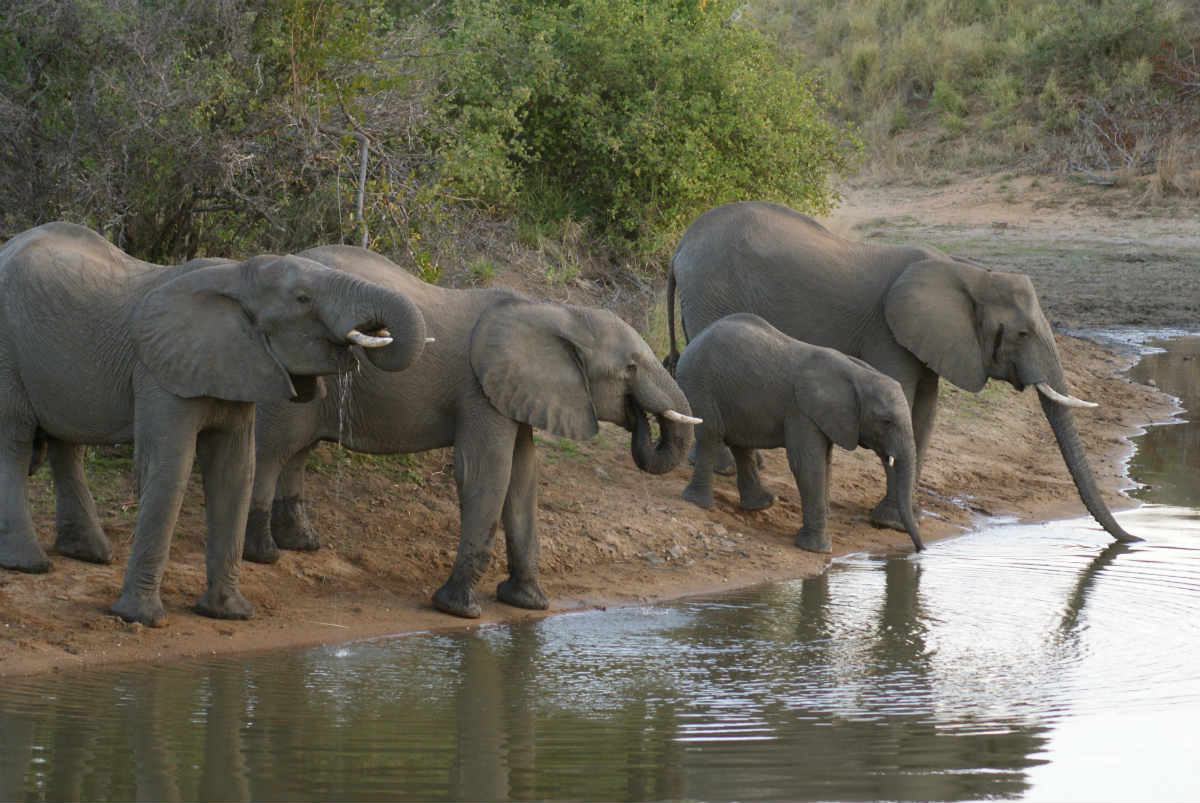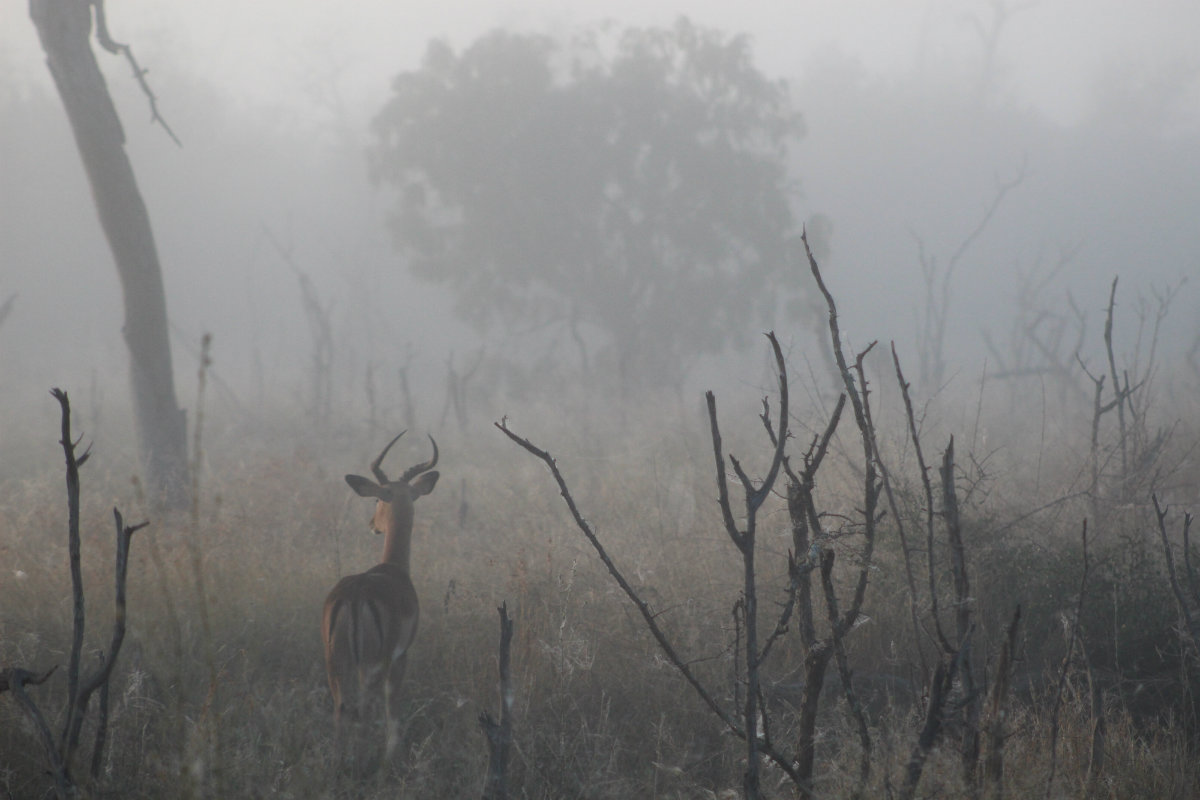
A herd of elephants have a drink at a watering hole, photographed by the Southern African Field School team in Kruger National Park, South Africa. The SAFS program offers students the chance to see wildlife like this first-hand as they study ecology and conservation biology. Photo credit: Christi Bubac, SAFS program instructor
It's not every morning that UAlberta students can go for a morning jog with giraffes before class. But earlier this year, a group of students had just that opportunity while studying abroad through the Southern African Field School (SAFS) program, run by the University of Alberta Department of Biological Sciences. Every spring, the program gives students both course credits and valuable research experience in southern Africa.
"SAFS and other UAlberta field schools offer a unique opportunity because students can study abroad, engage in real field work, and gain direct credit in their courses," said Audrey Reid, academic coordinator for the SAFS program.
The program offers credits in core biology courses, mixing classroom and field study to cover principles of ecology, conservation biology, and field methods in ecology of Southern Africa via BIOL 495.
But as past SAFS students point out, the benefits of the program go far beyond the academic:
"I was able to expand my knowledge and become passionate about topics I would never have explored otherwise," said Naomi Potter, honours physiology student and SAFS 2018 attendee. "I was able to gain life experiences I couldn't have gotten by completing courses on campus. I would suggest joining SAFS even if it's outside your field."
A jog with giraffes
Of course, one of the unique opportunities the program offers is the chance to see African wildlife firsthand; and SAFS students see plenty at a private savannah game reserve in eSwatini, formerly known as Swaziland. SAFS stays at a field station right on the reserve, maintained by local partner organization, All Out Africa.
"The reserve is fenced-off, and maintains a community of only herbivores, so students are able explore the wildlife and nature pretty freely," said Reid. "You can go for a morning jog and pass by giraffes, and fall asleep to the sound of hippopotamuses in the distance each night."
Over the four-week program, students learn a variety of field techniques: including small mammal capture and research on rodent populations, vegetation surveys, bird population estimation by identifying their unique calls, and more.
"I've always dreamt about going to Africa. I'm really passionate about animals, and I wanted to have an opportunity to get hands-on experience with animal research," said animal biology student Jordyn Berezan. "This trip has changed me as a student and a person-it's something that I will treasure for the rest of my life."
Interested in joining the next Southern African Field School? The SAFS program will return to eSwatini in May 2019. Information sessions will be held in the Biological Sciences Building on October 29 from 5 to 7 p.m., and on November 22 from 3 to 5 p.m.. Learn more on the SAFS website.
